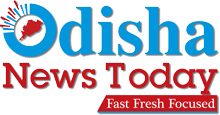A guide to effectively managediabetes during Ramadan
As the crescent moon signals the arrival of Ramadan, millions around the world will embark on a month-long journey of prayer and reflection. For those with diabetes, however, this sacred period brings forth a unique set of challenges. Balancing religious obligations with health considerations can be daunting, yet essential for maintaining well-being during this holiest month of the Islamic calendar.
Fasting from dawn until sunset is a fundamental pillar of Ramadan. However, for individuals managing diabetes, this abstinence from food and drink can cause fluctuations in blood glucose levels. To sustain energy levels and nourish the body, rituals include pre-dawn meals and evening feasts. However, for individuals with diabetes, these meals require careful consideration to prevent any sudden spikes or drops. Alongside a well-balanced nutritional plan, regular monitoring is important for people living with diabetes. Accurate and real-time blood glucose readings can be constantly tracked with the help of prick-free devices like continuous glucose monitoring (CGM). This combination of a balanced diet and regular monitoring is essential for those fasting during this time, ensuring effective management of blood glucose levels throughout the holy month.
Dr Mahesh Rath, Assistant Professor & Consultant in Diabetes,Thyroid & Adult Vaccination, Hi-Tech Medical College & Hospital, Bhubaneswar said, “According to a recent ICMR study, 101 million people in India are living with diabetes, underscoring the importance of effective holisticmanagement. Amidst the sacred observance of Ramadan, continuous glucose monitoring (CGM) emerges as an ally for people living with diabetes. Through real-time tracking of blood sugar levels, CGM empowers individuals to identify and manage any glucose spikes associated with pre- and post-fast meals.By harnessing CGM insights, people can make informed diet decisions. This can help them navigate the portion sizes and meal timing along with making diabetes specific nutrition choices that can address their needs. The symbiotic relationship between CGM data and dietary decisions fosters both effective blood glucose management and sense of empowerment.”
It is extremely important to consistently check your blood glucose levels. CGM devices support real-time glucose monitoring instead of capturing blood sugar levels at a particular point in time. The data is easily accessible on your smartphone, too, and can support easier decision-making related to food, physical activity, and therapy. Utilizing data from these devices can enable individuals to take corrective actions with the meal plan and maintain health during this period. According to tradition, the fast is broken with dates and fruits, which is followed by a proper balanced meal. Make sure to drink water and hydrate yourself well, and avoid highly caffeinated or sugary drinks like coffee, tea, and soft drinks.It is important to have a stable meal plan striking a balance between intake of carbohydrates, protein, and fats. Have more nutrients and fiber-rich starchy foods like oats, multigrain breads, vegetables, lentils (dal), and proteins like fish, tofu, and nuts.

